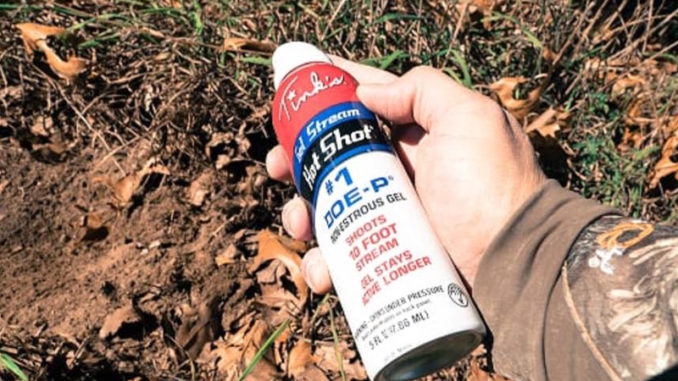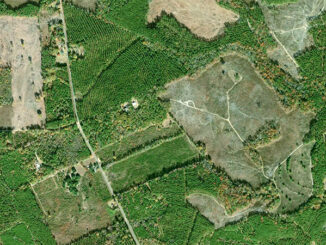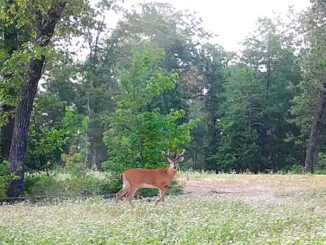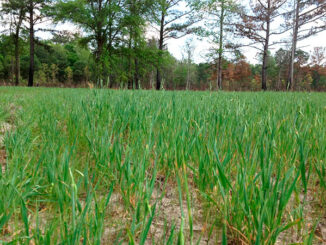
Ban is an effort to keep CWD out of state
The use of commercially-made natural deer urine, and attractants made with natural deer urine and other bodily fluids, has been banned by the state of South Carolina. These products are often used by deer hunters to attract other deer. The measure was passed as an attempt to keep Chronic Wasting Disease (CWD) out of the state.
SCDNR biologists Jay Cantrell and Charles Ruth talked about the ban, and how it is one way the state is trying to stay CWD-free.
“Some hunters utilize commercially-made deer scents, and most of them are urine based. In the interest of trying to be proactive and try and prevent Chronic Wasting Disease from getting into South Carolina, we had a regulation passed that bans the use of these scents. (The ban) is only for the ones that are made with natural deer urine or other deer body fluids and glands,” said Cantrell.
Synthetic scents are still legal. And so is urine you collect from a SC-killed deer.
Cantrell said hunters can still use scents that are made of synthetic urine. And hunters can also use natural urine, as long as it comes from a deer they have legally harvested in the state of South Carolina.
“There are a lot of synthetically made products out on the market now, and those are still legal for use. And there’s also an opportunity there if you legally harvest a deer in South Carolina, you can collect the deer urine or tarsal glands from that legally harvested deer in the state. So there are still opportunities for people who prefer to use scents and attractants like that,” he said.
Cantrell stressed that South Carolina isn’t alone in making such a regulation.
“Numerous other states have a ban on these products in place. And it’s just an effort to keep Chronic Wasting Disease out of the state,” he said. “There’s no testing possible that can be performed on these natural urine products, or on the deer they collect the urine from. So there’s just no way to know if they are safe,” he said.
CWD is currently in 26 states
Chronic Wasting Disease is known to exist in 26 states. No cases have been found in South Carolina, or in either of our neighboring states. However, it has been creeping closer to the Palmetto State in the past couple of years. Mississippi, Tennessee, and Virginia all have confirmed cases of the disease.
CWD is a fatal disease that is prevalent in numerous animals of the cervid family, which includes whitetail deer. Infected deer spread it to other deer through bodily fluids such as urine and saliva. So far, no method exists to test live deer for the disease. It can only be detected and verified after a deer’s death. That makes it very dangerous. Once a state confirms a portion of their deer herd has it, it’s too late to keep it out.
Ruth said the reason this urine ban is necessary is because CWD can be spread through bodily fluids. And when fluids with CWD get in the ground, it stays active for years. And it can be spread just by another deer encountering that tainted dirt.
No safety measures are in place for commercial urine products
“The disease agent can be found in body fluids. That disease agent, if in that urine, can contaminate the soil. And it could potentially be there for the local deer at some point in the future to get into. These commercial urines are produced on deer farms, many of which are in Chronic Wasting Disease states.
“These deer are standing on a grate system. They basically live in a barn on a grate. (When) they urinate, it goes through the grate, the urine is strained, it’s put in 55-gallon drums, and then it’s sent to a bottler. Some of it comes from one state. Some of it comes from another state, and so forth. And it’s batched. So there’s really no way to know where it’s coming from. Then it ends up in a bottle, it goes to South Carolina, and then you’ve got everybody spreading it out in the woods. And that’s not a good thing,” he said.
Like Cantrell, Ruth stressed the importance of doing all we can to keep CWD out of the state. In some states up north and in the midwest, CWD has caused deer hunting closures in whole regions of states. Some counties in CWD states like Pennsylvania are considering the wholesale slaughter of deer herds in an attempt to keep it from spreading to the other areas.
“To have CWD come into South Carolina would end deer hunting as we have always known it. It would be very detrimental to our deer herd and to the state,” said Ruth.
Click here to read about the differences between CWD and hemorrhagic disease.




